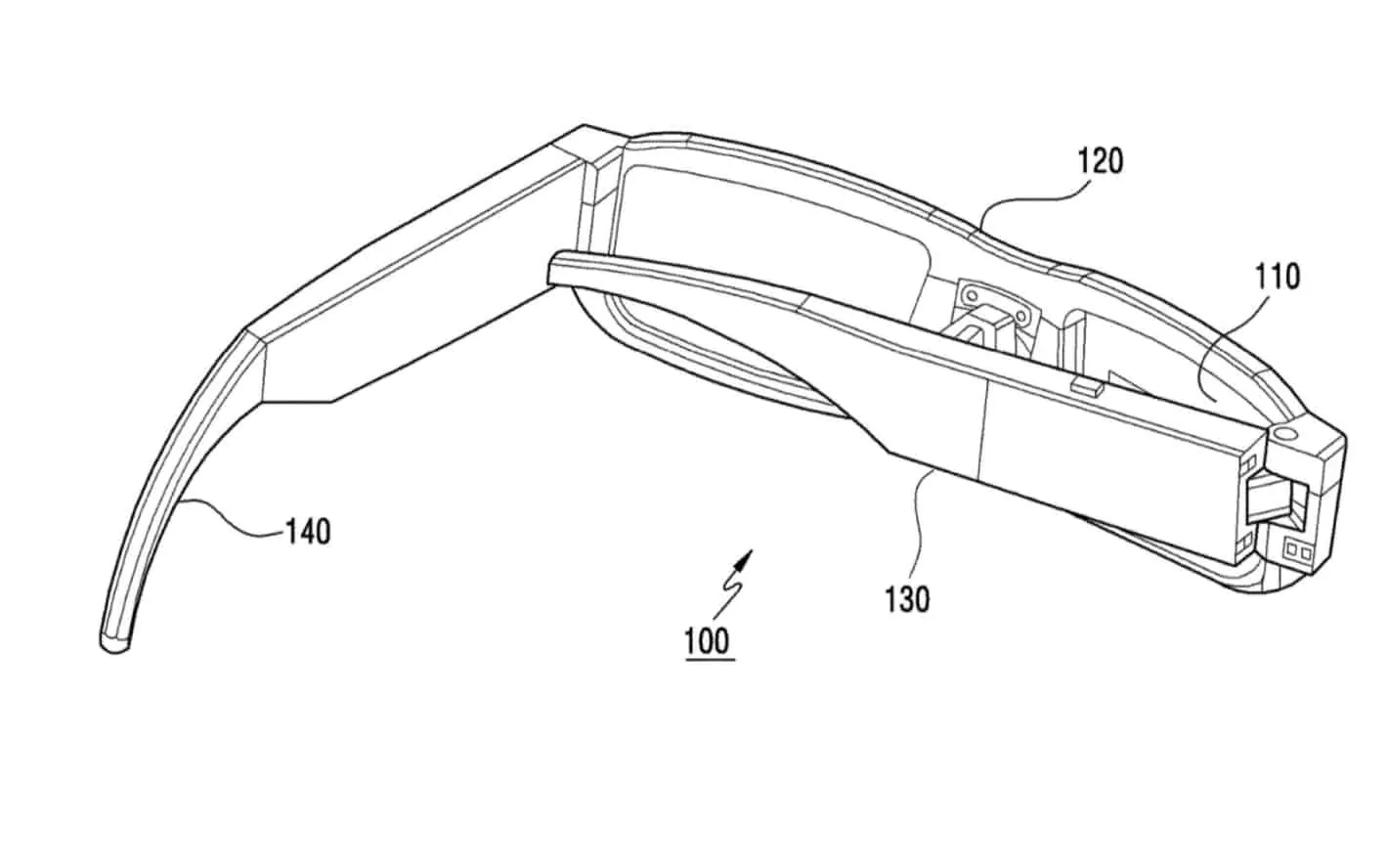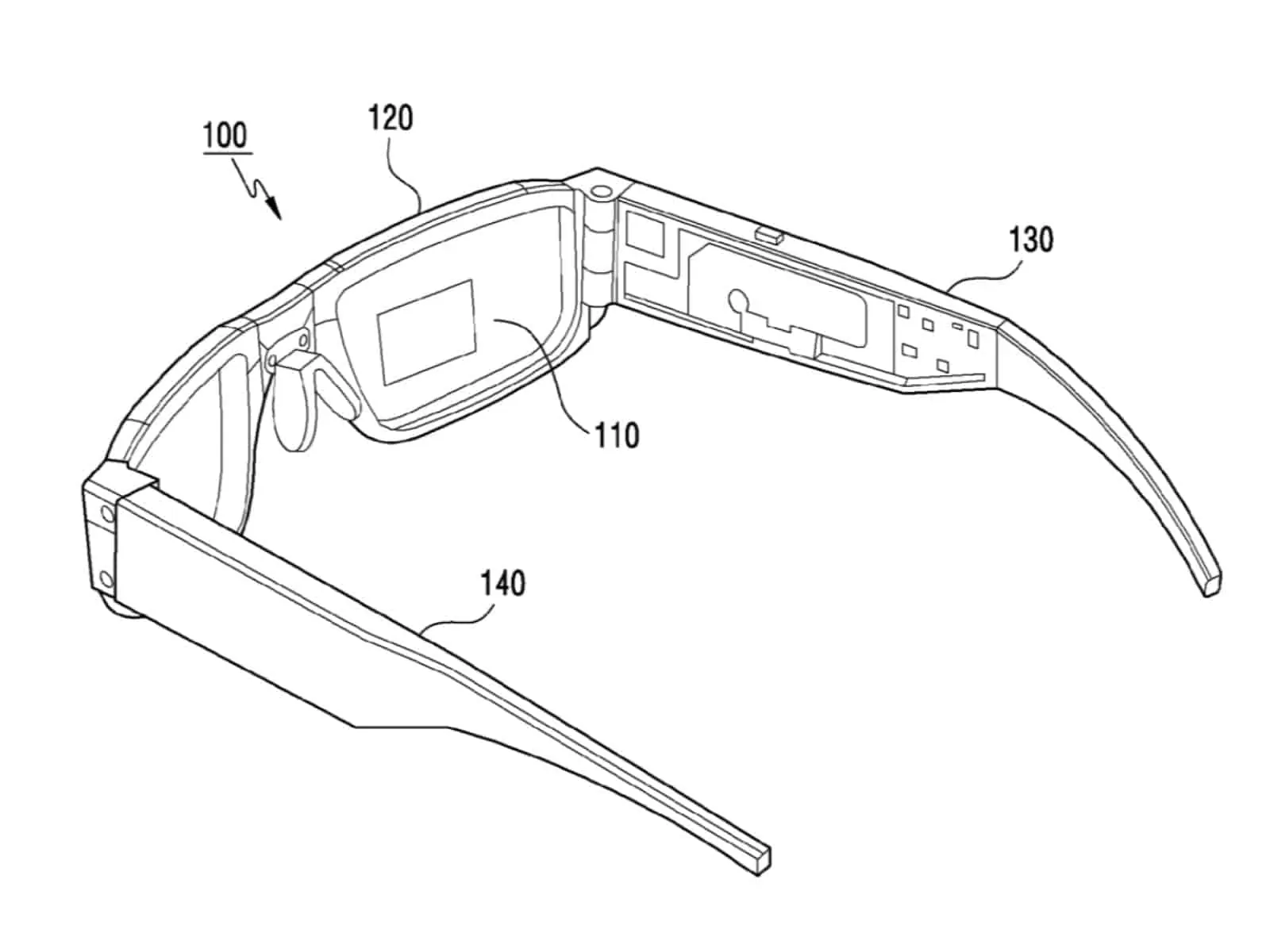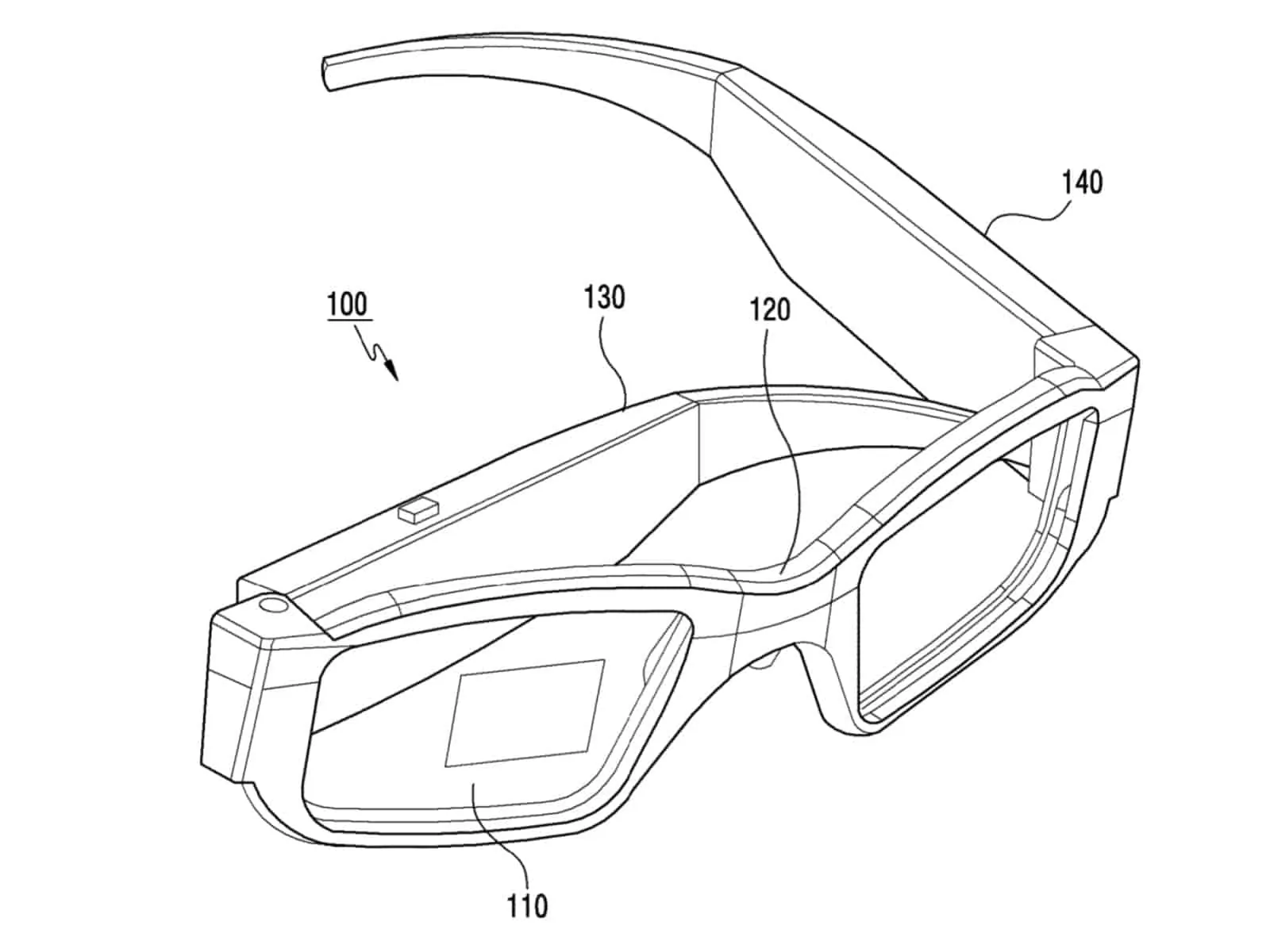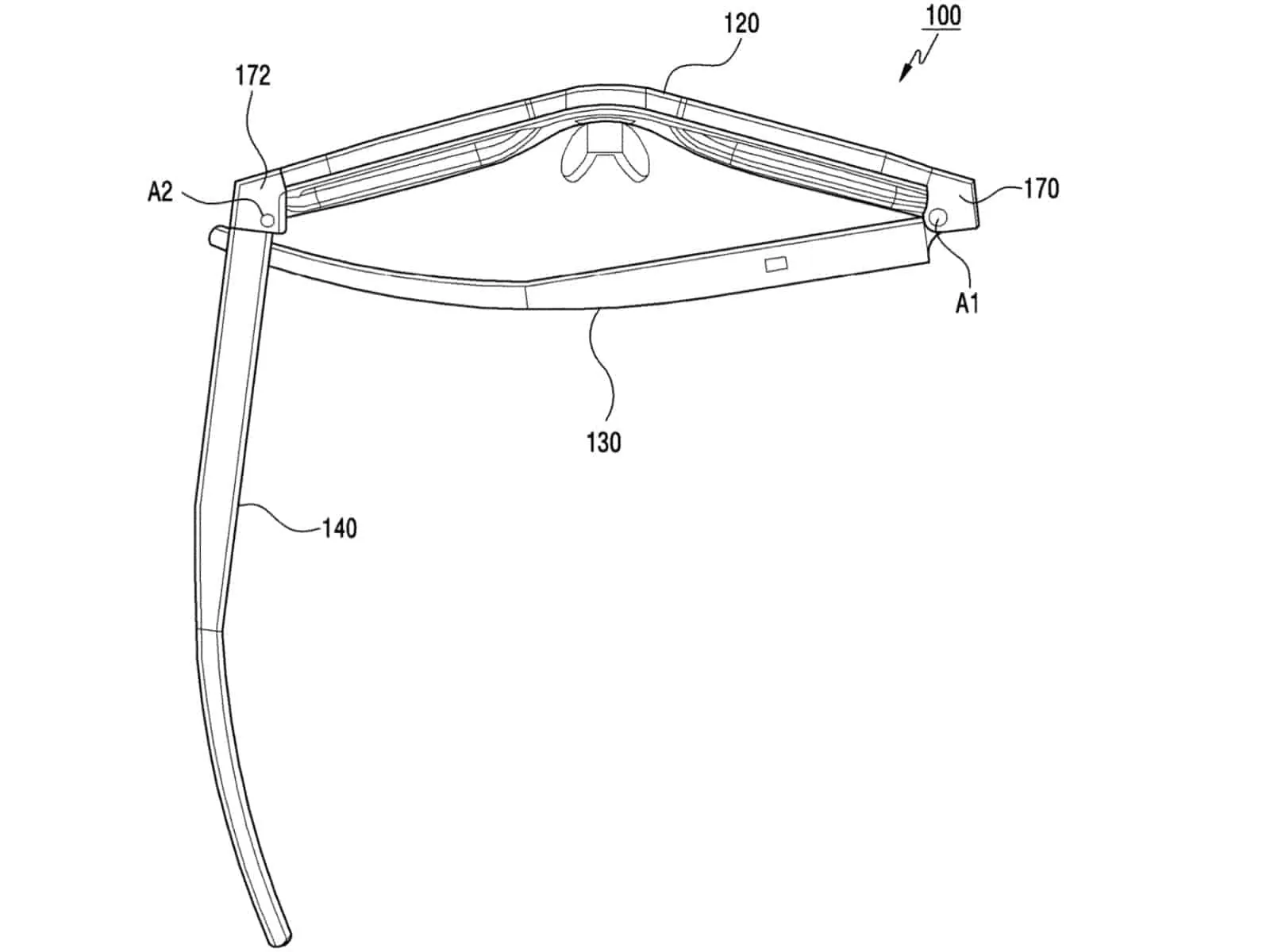Samsung has brought a brand new patent into play that may point to plans for an innovative pair of AR-enabled glasses or sunglasses with a ton of technology that would, in terms of features, collectively represent a first for the market segment. Spotted at the US Patent and Trademark Office (USPTO), one of the biggest new features would include an open circuit in the hinge of the glasses.
That would be kept in place by a magnet to prevent usability bugs but would also enable the device, including its screen and other components, to be automatically turned off when the device is folded for storage or charging. The patent also points to the inclusion of a button along one edge for activating various features, including a camera, as well as an “audio output” device.
What does all of that mean for users?
By comparison to face-borne AR wearables that are currently on the market, the patent points to innovations in the category that haven’t been front-and-center elsewhere in the industry.
The most obvious difference between Samsung’s wearable patent and Snap Inc.’s Spectacles, for example, is the inclusion of an easy-to-implement mechanism to effectively shut the glasses off. Such a feature should mean a more efficient system for better overall battery life. For contrast, Snap’s glasses are billed as lasting a full day or through one hundred 10-second long recordings — or “Snaps.”
Taking that further, the inclusion would keep images or video from being snapped by accident when the device isn’t being worn.
The fact that it’s Samsung exploring the technology in question has implications of its own too. The biggest of those is that, while there’s no guarantee these will work with anything other than Samsung smartphones, these glasses wouldn’t be directly connected to social networking like Snap’s aptly-named Spectacles are. That means users wouldn’t necessarily need to use any such service to get the most out of the wearable.
Samsung has also historically come very close to matching Snapchat’s capabilities in terms of what exactly the built-in AR is capable of. So, if the company does pursue these AR glasses, there’s a very good chance they’ll be loaded with extra features. That could include a charge-and-carry case that is wirelessly rechargeable too.
The latter feature seems all the more likely given the Korean tech giant’s recent shift in that direction with its reverse-wireless charging capable Samsung Galaxy S10 flagship and associated true wireless earbuds — namely, the Samsung Galaxy Buds.
There’s no guarantee these would also be waterproof, giving it even more parity with the abovementioned potential rival in the wearable market but that would be a big advantage here and is something else Samsung has generally excelled at as well. All of that is setting aside the above-mentioned hints within the patent suggesting that audio output might be included too, in line with the emerging audio AR wearables trend.
These might not come at all and probably won’t be cheap if they do
The patent in question is, relatively speaking, still very new since it was only just filed on July 11. That almost certainly indicates that Samsung hasn’t fully invested in a product that will be built from the design and there will undoubtedly be changes to the aesthetics since that’s not part of the patent.
The South Korean tech giant might also choose not to pursue the technology or just to license it out as it does with display panels and other components too. There’s no guarantee it will be launched at all.
Pricing an experimental gadget prior to release isn’t something that can be done with precision. With consideration for all of the included features and Samsung’s usual attention to detail with new product launches, they definitely wouldn’t be cheap either.
Spectacles typically run from $100 to $400 depending on whether or not prescription lenses are needed and other factors. Samsung’s patent points to AR-enabled glasses that would be able to do far more than snap pictures or videos, essentially bringing together every wearable tech into a single device. So there’s a good chance that if the company does press forward with its wearable, it’s going to be to create an entirely new ‘premium’ market in the category.







